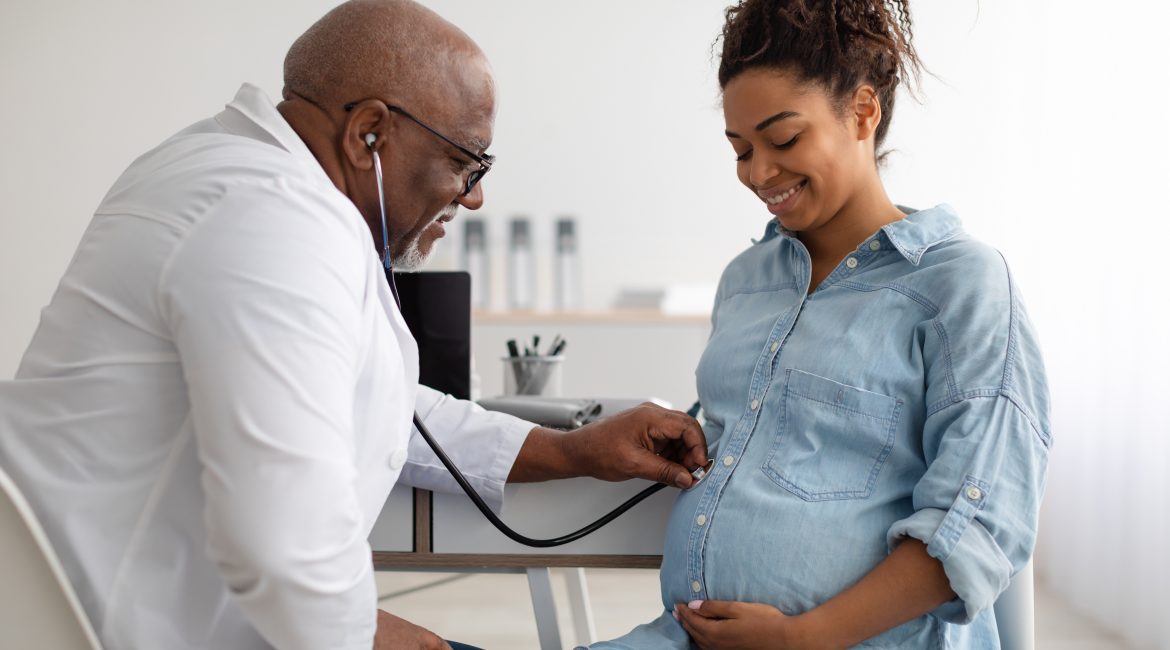It might feel like your belly couldn’t possibly get any bigger, but your baby still has some growing to do (and so does your belly). Here’s what to expect in your third trimester of pregnancy.
When does my third trimester start?
Your third trimester will start in your 28th week of pregnancy and last until you give birth – at around 40 weeks. Basically, it starts from month 7 and ends at month 9.
Did you know that 30% of all babies will stay in past the 40-week mark? If this is the case for you, then your doctor is likely to induce labour around week 42.
Discover: What’s The Deal with Cravings During Pregnancy?
Your baby’s growth during your third trimester
Your baby’s growth during your third trimester is rather significant. You can expect your little one to weigh roughly 2.8kgs to 4kgs by week 40. Your baby will be 48cm to 55 cm in length by the time he or she is born. Your baby’s increase in size can lead to some serious pokes and kicks in your gut.
What to expect in your third trimester of pregnancy
Here are some of the significant changes taking place:
Bones
Your baby is now transforming cartilage to bone from months 7 to 8. This means your baby needs to get more calcium from you, which means you need to stick to a diet of calcium-rich foods.
Hair, skin and nails
At 32 weeks, your baby’s previously transparent skin will now become opaque. During week 36, fat will continue to build up as your baby sheds his or her vernix (waxy substance protecting the skin from the amniotic fluid), as well as the lanugo (the hairy coat needed for warmth).
Digestive system
During your final weeks of pregnancy, your baby’s first poop, known as the meconium which consists mostly of the vernix, lanugo and blood cells will start to build up in his or her intestines.
The senses
Your little one’s touch receptors will now be developed around week 30. At week 31, your baby will have all of her 5 senses, meaning she can hear, feel, touch, see and smell.
The brain
Your baby’s brain will now start to grow faster than ever before. Around week 34, your baby will turn southward and settle into a heads-down position, unless your baby is stubborn and remains in the breech position. In this case, your doctor will try to manually turn your baby around week 37.
Changes taking place in your body
Abdominal discomfort
Your ligaments supporting your lower abdomen will start to stretch to make room for your growing baby, this means that you need to start taking it easy.
Fatigue
If you thought the first trimester hit you with feelings of lethargy and fatigue, then think again! Your body is under a lot of pressure and demands of a growing baby. Make sure you eat well (smaller more frequent meals) and slow down physically as much as you can. Chat with your doctor about what you can do in terms of exercise.
Heartburn
Your uterus will start to push the contents of your stomach upwards, causing chronic heartburn. Chat with your doctor about what sorts of foods to eat to prevent this.
Braxton Hicks
These contractions are your body’s natural way of getting ready for labour. They are less intense than labour contractions.
Varicose veins
As a result of all the extra blood your body is pumping, you will start to notice some bulging veins in your lower body. If you didn’t have these before you fell pregnant, then they are likely to disappear after birth (phew!).
Stretch marks
Essential oils and creams can help eliminate the appearance of these. But not to worry, every woman gets these when she is pregnant and you should be proud of your body no matter what.
Clumsiness
This is all thanks to the rush of hormones in your body right now. Your belly is also throwing you a little off balance.
Backache
The pregnancy hormone known as relaxin will start to loosen your joints up. Your belly is also growing which will pull your centre of gravity off, giving you backache.
Breasts leaking
This is your body’s way of getting ready for your baby. Leaking can be a bit of a nuisance (especially if you are still working a full-time corporate job). Wearing breast pads inside your bra will help to absorb the milk and stop any wet patches from showing through your clothes.
Labour symptoms to watch out for
Bloody show: a form of stringy mucus with a brown or pink tinge with blood means that you are in labour.
Labour contractions: these are far more intense than Braxton Hicks and will get worse the more you move around.
Your water breaking: This may only happen when you are already at the hospital
What to do during your third trimester
- Keep track of your baby’s movement
- Keep track of your weight
- Keep moving (with your doctor’s permission, of course)
- Take a tour of the hospital
- Find a paediatrician for your baby
- Get your baby’s nursery sorted
- Learn more about breastfeeding
We hope that this quick crash course on what to expect in your third trimester of pregnancy has helped to put your mind a little more at ease. Good luck with this last push towards the finish line – you’ve got this, mama!
Read this next: Why you need health insurance when you’re expecting
Your Health Insurance Family,
Oneplan




